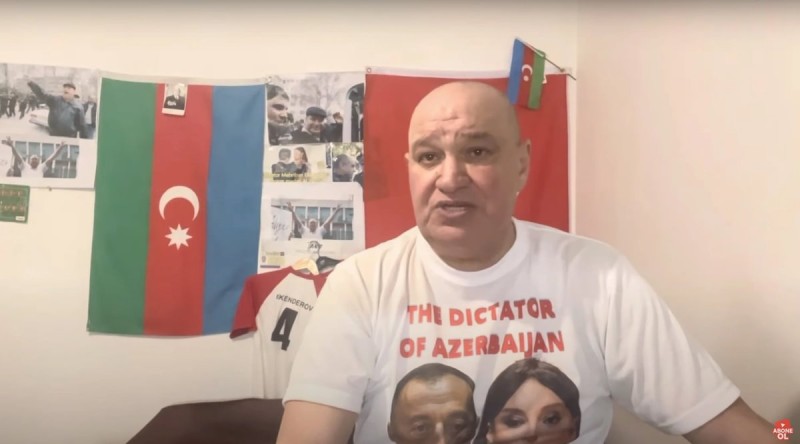Vidadi Isgandarli, an outspoken critic of the Azerbaijani government, was brutally attacked on Sunday, according to his family members.
The death was first reported by another exiled Azerbaijani journalist in France, Ganimat Zahidov.
"The numerous stab wounds he received ended his life and it was impossible to save him," the journalist wrote on Facebook.
According to his brother, Oktay Isgandarli, “three masked assailants entered Vidadi's bedroom through a window and stabbed him 24 times.”
He said he talked to Vidadi for about half a minute. “He said that three people were masked, they did not speak. They stabbed him. Vidadi resisted and ran away,” the brother told Radio Liberty's Azerbaijani service.
His family strongly believes the attack is directly linked to his outspoken political activism, suspecting it to be a targeted act in retaliation for his relentless criticism of the Azerbaijani regime. Azerbaijani government authorities didn’t respond to media inquiries, or make any public statement. A spokesperson for the local police in Mulhouse in eastern France, where the attack happened, confirmed that an investigation is underway, but did not give further details.
Isgandarli was also attacked in France in 2022. In an interview, he revealed that 10 to 12 armed men had attempted to kill him. Although French police identified the attackers as members of a local gang, Isgandarli believed the assault was orchestrated by the Azerbaijani government, viewing it as another attempt to silence his dissent.
Earlier this year, during a parliamentary hearing, Azerbaijani lawmaker Zahid Oruj suggested that Azerbaijan needs to strengthen mechanisms to hold accountable those systematically attacking the president and his family on various media platforms.
"The current legislation protecting the honor and dignity of the head of state is ineffective. Every day, we witness relentless, systematic attacks on the president and his family across multiple information networks. An organized campaign of slander and informational terror is being waged against the Commander-in-Chief of the Armed Forces, who is responsible for the defense and security of the nation," Oruj stated.
He further added, "If judicial and legal mechanisms to safeguard the president's honor and dignity are failing, then defamation labs should be declared open for neutralization as legitimate targets”.
Vidadi Isgandarli was also an active participant in Azerbaijan's 2010 parliamentary elections, during which he publicly denounced the results, alleging that the elections were rigged. He joined protests alongside opposition representatives against the results.
In 2011, Isgandarli was detained in Baku, where a court found him guilty of various offenses, including assault and interfering with the work of election commissions. He was sentenced to three and a half years in prison.
Isgandarli firmly rejected these charges, calling them politically motivated and fabricated.
“I fought tirelessly, exposing the illegalities, but instead of addressing these serious issues, I was arrested. The entire world witnessed how the elections in Azerbaijan were rigged…” read a letter he sent from the detention center to the Azadliq newspaper.
He was released in December 2012 under an amnesty decree signed by the President of Azerbaijan, Ilham Aliyev.
In 2015, he and his family emigrated to France.






